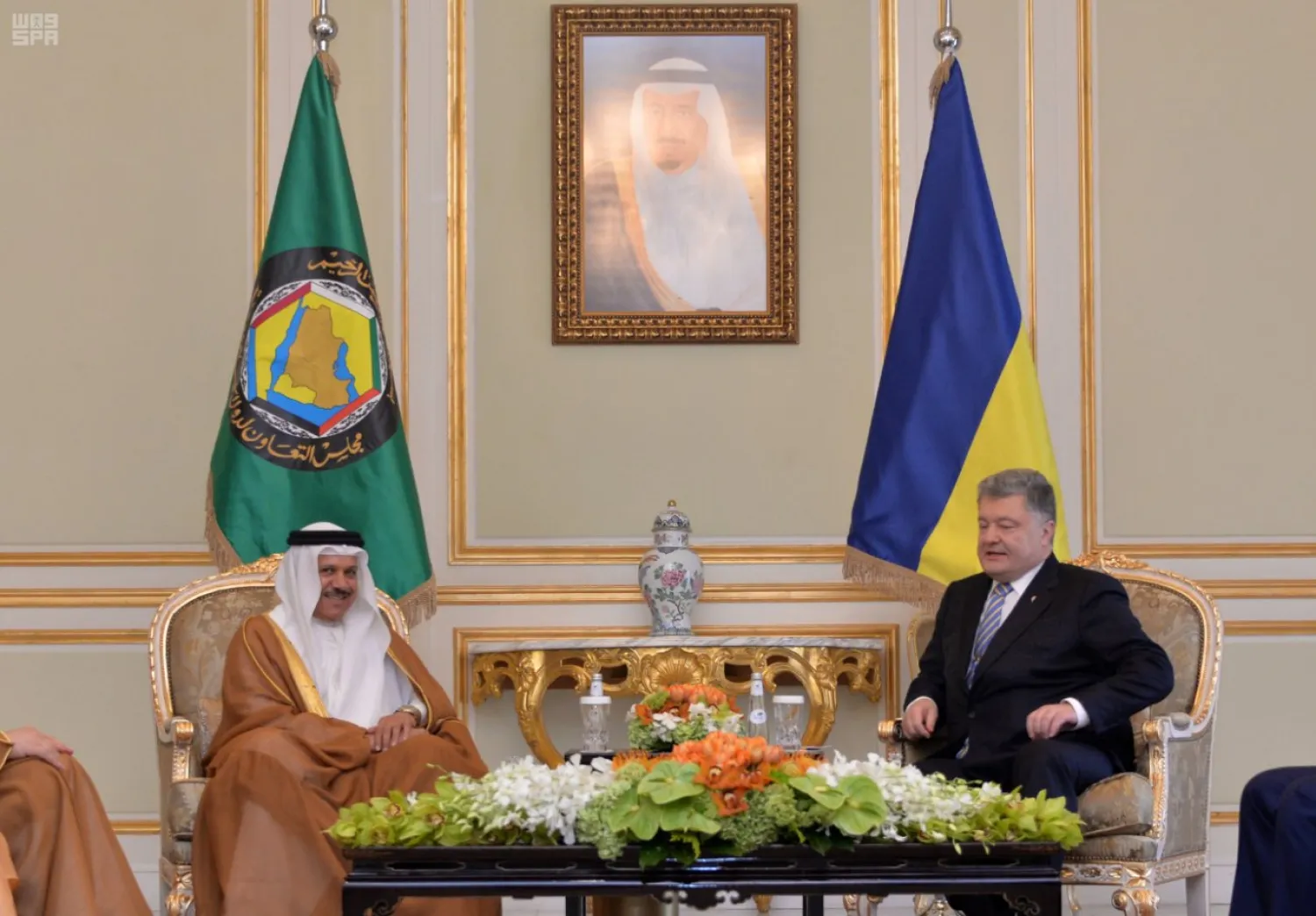Gulf Cooperation Council (GCC) and Ukraine signed a memorandum of understanding (MoU) in the fields of politics, economy, security, culture, as well as education and tourism in the presence of Ukrainian President Petro Poroshenko, the General Secretariat of GCC and the Ukrainian Ministry of Foreign Affairs.
The MoU was co-signed by GCC Secretary-General Abdullatif al-Zayani and Ukrainian Minister of Foreign Affairs Pavlo Klimkin.
The MoU aims to hold consultations between the two sides in order to explore fields of cooperation and dialogue.
Assistant Secretary General of GCC for Political Affairs and Negotiations Abdulaziz al-Owaisheq reiterated that the memorandum deals with political negotiation and countering terrorism and its funding. He stated that the MoU has three main fields; security and political cooperation, economic cooperation, and exchange between Gulf and Ukrainian people through tourism, education and culture.
Speaking to Asharq Al-Awsat, Owaisheq stated that the MoU will be the beginning of a series of negotiations dealing with politics, security, and countering terrorism, then it will deal with trade, investment, energy, education, health and tourism.
The Assistant Secretary-General stated that terrorism is an important issue for both the Gulf and Ukraine and there are three fields of cooperation between the two: security cooperation between security forces: Gulf police in UAE, security forces of GCC and their counterparts in Ukraine. Second, GCC and Ukraine want to counter terrorism funding through a committee of the GCC, according to Owaisheq. He also stated that GCC wants to fight terrorist rhetoric and ideologies and that GCC has specialized centers in Saudi Arabia and UAE which will cooperate with their peers in Ukraine for that purpose.
Owaisheq also explained that the MoU stipulates that both sides should hold meetings and negotiations to further explore means of cooperation and dialogue and suggest a suitable mechanism to achieve that. In addition, GCC and Ukraine agreed to hold an annual meeting, or whenever needed on the sidelines of UN’s General Assembly, and to task a group of experts with discussing any issues both parties agree on.









